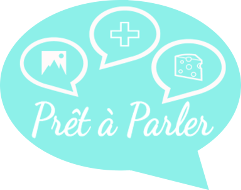Imagine this: you’re preparing for the fide exam with only an AI tool at your side. At first, things move quickly. Vocabulary lists appear instantly, grammar rules are explained in seconds, and you can practice as much as you like, anytime. It feels like you’ve found the perfect study buddy.
But then something strange happens. You start coming across odd expressions or explanations that don’t quite fit. The AI sounds confident, but you’re not sure whether to truly trust it. Instead of building confidence, you’re left second-guessing yourself and lost.
The AI Phase: Quick Progress, Hidden Challenges
AI tools can be wonderful companions at the start of your learning journey. They respond instantly, provide endless examples, and make it possible to practice at any time of day. For many learners, this creates a feeling of rapid progress. The first few weeks may feel exciting and motivating, as if fluency is just around the corner.
But soon, cracks begin to appear. Without a clear learning plan, practice can become fragmented, and progress starts to feel less certain. Learners also encounter moments of doubt when the AI gives an answer that sounds convincing but doesn’t quite match what they see in real life. Because there’s no reliable guide to confirm what is right or wrong, small mistakes can slip in unnoticed. Over time, these errors accumulate and turn into habits that are difficult to unlearn.
There’s also the question of motivation. AI can supply endless drills, but it cannot look you in the eye and notice when you’re tired, discouraged, or overwhelmed. It cannot tell when you need to pause and celebrate what you’ve achieved. This absence of emotional awareness is often what makes learners feel isolated, even when they’re surrounded by digital resources.
The Human Teacher Steps In
A teacher transforms that experience completely. Instead of being alone with a machine, you’re in conversation with someone who understands your goals, your pace, and your struggles. A good teacher not only corrects mistakes but also ensures that your learning stays on track with a clear sense of direction.
When you speak with a teacher, you don’t just get a right or wrong answer — you get context. A teacher can explain why a phrase is polite in one setting but too casual in another, or how a Swiss French expression differs from what you might hear in Paris, Montreal, Brussels or Morocco. These subtleties make the difference between speaking French correctly and speaking it naturally.
Most importantly, a teacher brings empathy. They know when to push you and when to reassure you, when to challenge you with something new and when to slow down. They share their own stories, laugh with you at your mistakes, and make you feel that your progress matters. This human connection turns learning from a mechanical exercise into a journey of growth, confidence, and belonging.
A few words from one of our happy students:
Before learning with Prêt à Parler, my wife and I have been using Linguatalk to improve our French. We made good progress and were quite satisfied with it until we felt we needed to interact with a real human being. When we started working with Superprof Marjolaine, we realised that AI could never mimic her great sense of humor or convey the warmth she brings into the online classroom, two elements which are very important to us! Even though AI helps us practice outside of our private lessons, it doesn’t provide the important nuances and cultural explanations only a human teacher can provide.
- Joshua P., fide applicant for his Permis C anticipé and Prêt à Parler student since May 2025
Why This Matters in Switzerland
Learning French here isn’t just about passing a test. It’s about integration, feeling at home, and belonging in your community. You don’t want to just “know the rules”—you want to be able to order fondue with friends, chat with colleagues at work, or handle official appointments with confidence AND with heart.
Listen to the discussion between our CEO Isabelle and Mykhailo, our successful fide test and Swiss naturalisation student, has to say about learning with AI as opposed to learning with Prêt à Parler :
Conclusion: Learning French Is About Connection
AI can be a helpful companion, but fluency, confidence, and real integration come only through human guidance. Learning French is not just an intellectual exercise — it’s a journey of connection, empathy, and understanding.
Ready to experience the difference a real teacher can make with your French progress and your confidence in your daily life in Suisse romande?
Isabelle
As a native Québécoise, born to a Franco-Belgian family, now living in Nyon with her two children, Isabelle is no stranger to the expat reality! Trained as a professional opera singer, her passion for arts and languages led her to become an ambassador of the French language & francophone culture, i.e. a French Teacher!
She founded Prêt à Parler in January 2015. Since then she's been hard at work helping English-speaking learners from the international community of Suisse romande make French part of their everyday life! Prêt à Parler's mission is based on what Isabelle does best: helping busy professionals and parents improve their French language skills by providing a high quality, eco-friendly, fun, no-nonsense approach to learning French online!








0 comments